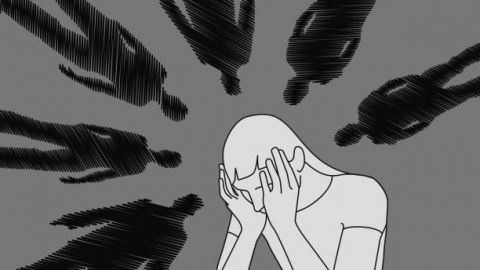Parts Used
The above ground parts (flowers, leaves, and stems) of the passionflower are used for medicinal purposes.
Available Forms
Available forms include the following:
Infusions
Teas
Liquid extracts
Tinctures
How to Take It
Pediatric
No studies have examined the effects of passionflower in children, so do not give passionflower to a child without a doctor's supervision. Adjust the recommended adult dose to account for the child's weight.
Adult
The following are examples of forms and doses used for adults. Speak to your doctor for specific recommendations for your condition:
Tea: Steep 0.5 – 2 g (about 1 tsp.) of dried herb in 1 cup boiling water for 10 minutes; strain and cool. For anxiety, drink 3 – 4 cups per day. For insomnia, drink one cup an hour before going to bed.
Fluid extract (1:1 in 25% alcohol): 10 – 20 drops, 3 times a day
Tincture (1:5 in 45% alcohol): 10 – 45 drops, 3 times a day
Precautions
The use of herbs is a time honored approach to strengthening the body and treating disease. Herbs, however, can trigger side effects and can interact with other herbs, supplements, or medications. For these reasons, you should take herbs with care, under the supervision of a health care provider.
Do not take passionflower if you are pregnant or breastfeeding.
For others, passionflower is generally considered to be safe and nontoxic in recommended doses.
Possible Interactions
Passionflower may interact with the following medications:
Sedatives (drugs that cause sleepiness) — Because of its calming effect, passionflower may make the effects of sedative medications stronger. These medications include:
Anticonvulsants such as phenytoin (Dilantin)
Barbiturates
Benzodiazepines such as alprazolam (Xanax) and diazepam (Valium)
Drugs for insomnia, such as zolpidem (Ambien), zaleplon (Sonata), eszopiclone (Lunesta), ramelteon (Rozerem)
Tricyclic antidepressants, such as amitriptyline (Elavil), amoxapine, doxepin (Sinequan), and nortriptyline (Pamelor)
Antiplatelets and anticoagulants (blood thinners) — Passionflower may increase the amount of time blood needs to clot, so it could make the effects of blood thinning medications stronger and increase your risk of bleeding. Blood thinning drugs include:
Clopidogrel (Plavix)
Warfarin (Coumadin)
Aspirin
Monoamine oxidase inhibitors (MAO inhibitors or MAOIs) — MAO inhibitors are an older class of antidepressants that are not often prescribed now. Theoretically, passionflower might increase the effects of MAO inhibitors, as well as their side effects, which can be dangerous. These drugs include:
Isocarboxazid (Marplan)
Phenelzine (Nardil)
Tranylcypromine (Parnate)
Related Articles
-
what they say to me
avery@14, , Anxiety, LGBT, Anxiety, Lesbian, Gay, LGBTQ, 0
so a gorp of guys will not leave me alone they keep making fun of me when they see...
-
God
adam.l.tindall, , Anxiety, 0 -
God
adam.l.tindall, , Anxiety, 0 -
Do you know that Africans made America what it is today
nelson, , Anxiety, 0
Lets sit and relax and concentrate on this topic because it might even energize and juxtapose you into conducting...
-
Damn Usual Frustration
Harley, , Anxiety, Anxiety, Career, Questions, Weight Loss, 0
OK, now I am just plain pissed at myself! First off, I am not understanding why this is coming...
-
Foods anxious people should avoid
yudith, , Anxiety, Addiction, ADHD, Anxiety, Child, Sleep Disorders, Weight Loss, 0
If you suffer from anxiety or panic attacks, certain foods may make your symptoms worse. Learn about five foods...
-
Made a connection
Victorianne, , Anxiety, Addiction, Anger, Anxiety, Grief, Relationships, Religion, Therapy, 1
Have made an important connection–can\'t remember just when it came to me, but here it is: anxiety is swallowed...
-
Just a silly little guy
Edmund, , Anxiety, Depression, LGBT, Uncategorized, 2
Hello everyone, whos out there and reading my little thoughts. I wondre how many people feels like me now....
0 Comments




